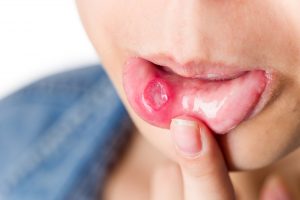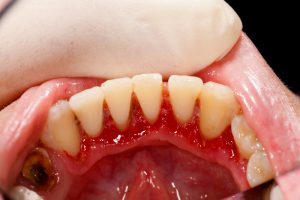What Diseases Can A Dentist Diagnose?
A simple visit to your dentist could give you early warning of serious diseases. Your dentist will examine your teeth, gums and your mouth overall and can check for signs of problems with your general health. At Robert Duhig Dental, we are passionate about patient health, and it doesn’t just stop with healthy teeth!
Dental diagnostics for thousands of systemic diseases
Your mouth can tell a thousand tales! There is mounting evidence that up to 90% of systematic diseases manifest oral symptoms, suggesting your dentist should be the first port of call for disease diagnosis. To ensure the best possible dental treatment, patients should:
- Choose a dentist and stick with that dentist
- Choose a dentist who is highly observant, and never “rushed”
- Make an appointment immediately if you notice any changes in your mouth
- Inform your dentist of any recent illnesses or symptoms
- Follow through with any further testing or treatment recommended
Warning signs it’s time to make an appointment
Many of the common warning signs of serious disease can also be something completely benign. It’s vital to check with your dentist to be sure. A dental diagnosis will often rule out serious disease and your dentist can help you with simple ways to prevent further problems.
Mouth Ulcers
We’ve all had an ulcer from time to time, and usually it’s a symptom of a minor bacterial infection in your mouth or an issue with the alignment of your teeth. Mouth ulcers are rounded sore/s inside your mouth that have swelling and tenderness around the sore. If you’re frequently suffering from ulcers, have mouth ulcers that won’t heal or have a particularly bad outbreak, this may be a sign of “nothing serious” but can also indicate:
- Reactions to drugs
- Reaction to certain chemicals
- Herpes simplex
- Autoimmune diseases
- Syphillis
- Gonorrhea
- TB
- Hand foot and mouth disease
- HIV
- Lymphoma
- Diabetes Mellitus
- Behcet’s Syndrome
- Inflammatory bowel disease
- Rare forms of arthritis
- Wegener’s Granulomatosis
- Fungal diseases
- Various cancers
- Varicella
- Rubeola
- Epidermolysis Bullosa
Oral Lesions
Oral lesions are discoloured spots or shapes inside your mouth. They can be white, purple, brown, black or even near to invisible, they can be very painful or not painful at all. Different kinds of lesions appear in different parts of the mouth and can be completely harmless or very serious. Because there are so many types and because they appear in so many places, it’s impossible to self-diagnose an oral lesion. If you notice a change in your mouth, it’s time to see a dentist. A lesion could be a simple, no worries issue or it could indicate:
- Oral cancer
- Submucous fibrosis
- Fordyce’s ganules
- Ectopic lymphoid tissue
- Cysts
- Parulis
- Lipoma
- HIV
- Vascula diseases
- Pregnancy
- Various granulomas
- Yeast infections
- Psoriasis
- Vitamin deficiency
- Anemia
- Gingervitis
- Drug allergies
- Smoking related diseases
- Oral melanotic macule
- Nerve diseases
- Melanoma
- Exposure to heavy metals
- Papillary hyperplasia
- Condyloma latum
- Squamous papilloma
- HPV (human papillomavirus)
- Bowel disease
- Crohn’s disease
Read the full list here.
Gingival Swelling
“Swollen gums” are most commonly caused by your oral care regime and treatment is usually as simple as getting some tips on better brushing and flossing techniques. It’s common in babies (and is not dangerous and will disappear over time) but can also indicate:
- Pyogenic and peripheral cell granuloma
- Peripheral fibroma
- Parulis
- Exostosis
- Gingival cyst
- Eruption cyst
- Hyperplasia
What your dentist may do
From the rather extensive list (and this isn’t exhaustive, learn more about sleep apnoea and bad breath symptoms) you may be expecting a referral to Dr House M.D. In fact, most oral issues are harmless and simple to treat. If your dentist performs an extensive and careful examination of your mouth and finds anything alarming, you’ll be referred to your GP or an appropriate specialist. Getting your six monthly check-up is vital, not just for healthy teeth and gums, but for your overall wellbeing.
Brisbane’s dental diagnostic centre
At Robert Duhig Dental, we’re investing in state of the art technology to assist our patients get the right diagnosis. As careful, gentle dentists, we take pride in providing patients with a thorough and careful examination to ensure optimum health. We also invest in technology that greatly increases our ability to provide you with answers. We believe that your local dentist should care for you the way a “country dentist” will – only with the latest in diagnostic technology at your disposal.
I have noticed a change in my mouth – what now?
The sooner you act, the faster we can put your mind at ease.



